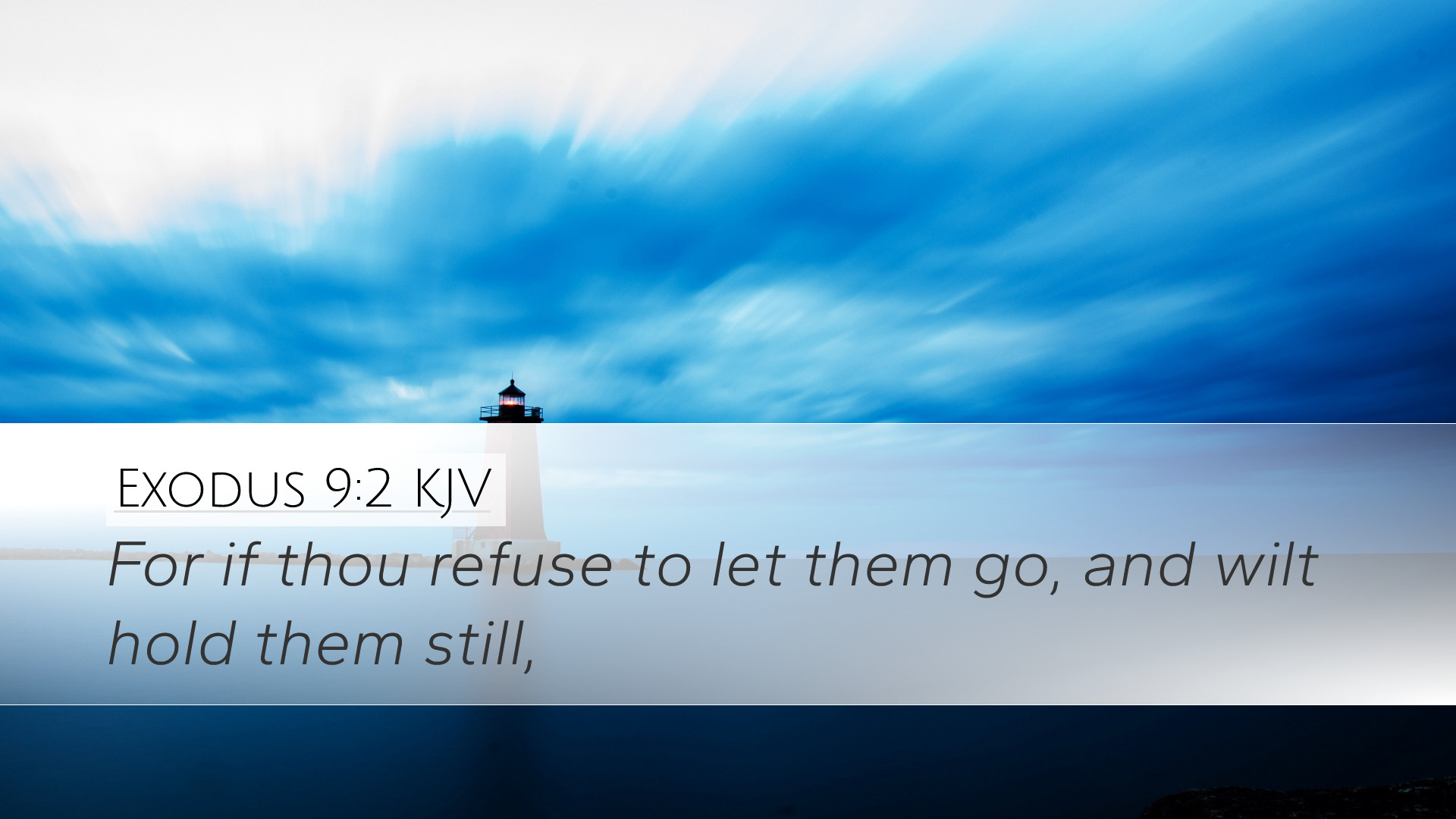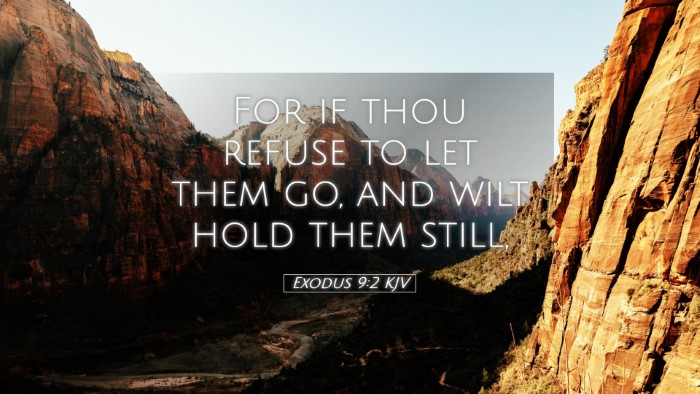Commentary on Exodus 9:2
Exodus 9:2 states: "If you refuse to let them go and continue to hold them back," This verse is part of the narrative where God is declaring His sovereignty over Egypt through a series of plagues. The context reflects the ongoing conflict between God’s will and Pharaoh’s obstinacy.
Contextual Background
This verse is pivotal in understanding the nature of divine judgment and human rebellion.
- The Historical Setting: The Israelites were enslaved in Egypt, and God had chosen Moses as His instrument to deliver them. Exodus records a series of plagues sent by God to persuade Pharaoh to release the Israelites.
- Pharaoh's Hardening Heart: This theme recurs throughout the book. Pharaoh repeatedly hardens his heart against God’s commands, illustrating human resistance to divine authority.
Theological Insights
This verse highlights several profound theological truths:
- Divine Authority: The demand from God signifies His sovereignty over nations and rulers. The exhortation to let the Israelites go showcases God's ultimate control over human affairs.
- Justice and Mercy: God’s plagues are acts of both judgment and a call to repentance. He offers Pharaoh repeated chances to relent but also reveals the consequences of ongoing disobedience.
Commentary Excerpts
Matthew Henry's Commentary
Matthew Henry emphasizes the firmness of God’s commands and the terrible consequences of resisting divine authority. He points out that God has given Pharaoh ample opportunity to obey, yet he continues to display obstinacy.
Albert Barnes' Notes
Albert Barnes discusses the significance of Pharaoh's refusal. He notes that this refusal signifies a greater spiritual rebellion against God, a theme that resonates throughout the biblical narrative. Barnes reflects on how such obstinacy not only leads to personal suffering but can have far-reaching repercussions for nations.
Adam Clarke's Commentary
Adam Clarke provides a deep analytical perspective on the text, pointing out the broader implications of Pharaoh's actions. He argues that this scenario illustrates the conflict between divine command and earthly authority. Clarke also highlights God’s unwillingness to force obedience while making it clear that judgment will inevitably come if one persists in sinning against God.
Practical Applications
For contemporary readers—pastors, students, theologians, and Bible scholars—there are profound lessons to be drawn:
- Obedience to God: The call for obedience is as relevant today as it was in ancient times. God desires His people to heed His call without hesitation.
- The Danger of Hardened Hearts: Just as Pharaoh hardened his heart, believers must be cautious of allowing their hearts to grow callous to God’s voice.
- The Cost of Disobedience: The narrative serves as a warning about the consequences of rebellion. Unyielding disobedience can lead not only to personal loss but communal calamity.
Conclusion
Exodus 9:2 serves as an important reminder of God’s power and the seriousness with which He takes our responses to His commands. The rich insights drawn from respected commentaries provide a multi-dimensional understanding of the divine-human relationship as it unfolds in this text. It challenges modern readers to engage with their faith actively and consider the implications of obedience—or the lack thereof—in their spiritual lives.


